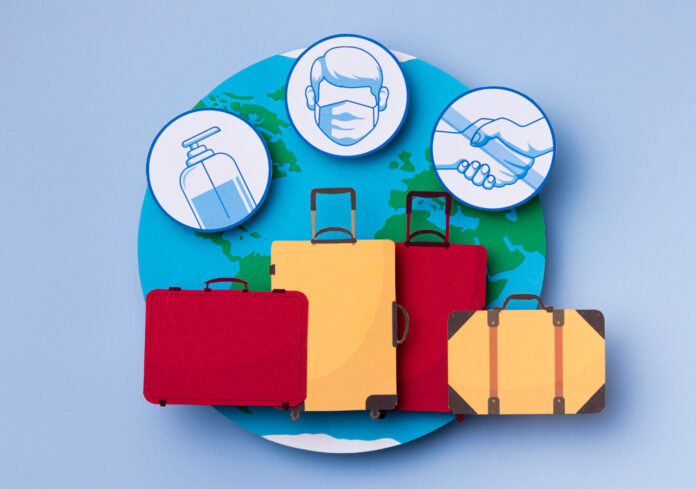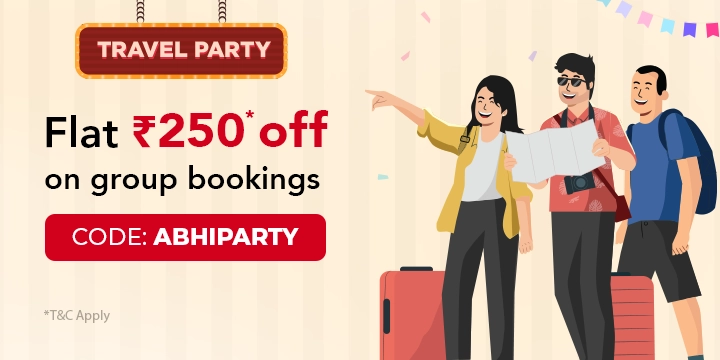It’s always exciting to explore new places and travel to offbeat locations. Sometimes, we get lost in all the excitement and forget to take travel safety precautions while traveling the world of new places.
While travelling to a new destination may be subjected to long-haul flights, unfamiliar climates and cities, and pockets of poverty. You also have to factor in the cost of living which can differ significantly from city to city (and country). The point is, there are several issues that you should be aware of before travelling to a new place if you want to make your trip a safe and memorable one.
Keep these personal safety travel tips in mind when you visit a new place and travel safely.
Safety Tip 1:
While travelling to a new, unfamiliar place, knowing and understanding where you are going and why is important. Get with your friends who have been before and ask them for advice about the area you will be visiting. They will likely have a lot of knowledge that could save your life from any potential danger that may lurk around every corner. Have confidence in what they say, their experience should reflect in the advice they give.
Safety Tip 2:
When choosing a taxi, make sure to find one that is licensed and ask to see the license. Find out from the driver how much he charges for the ride. It is best to bring small bills for tipping so you will not have a problem in case you need to pay him extra money. If there are other people in the taxi beside the passenger, it is better to ask them how much they pay and if it seems reasonable as well.
Safety Tip 3:
If you are alone and have no choice but to walk back to your hotel at night, make sure that you know the area well. Make sure the streets are well lit. Look for restaurants and cafes that are open. If you need help, ask someone passing by if they can help you get back. Do not take any chances as these things do happen even in big cities like Delhi and Mumbai. Just make sure you are safe in your space and back to your hotel safely.
Safety Tip 4:
Never wear jewellery when travelling to a new area. Hide your jewellery in a small case or handbag so that you will not have any problems with pickpockets stealing from you. It is better to not wear any jewellery at all if possible. In general, it is best to avoid walking on the road at night without a companion or someone who can help if you get lost. Also, make sure to carry a light source with you at all times.
Safety Tip 5:
Do not walk around alone and do not accept rides from strangers. These are the two main ways to get robbed or sexually assaulted. Ask for help if you need it and avoid travelling alone if possible and be aware of your surroundings. If you do find yourself in a situation where you need help, be brave and ask the person who is helping you if they could call the police.
Safety Tip 6:
If you are going somewhere that involves meditation or religious activities, it is best to tell your friends and family beforehand so they can make other arrangements if necessary. Call ahead and ask your host if there is anything different about visiting their place that could affect your personal safety in any way.
Safety Tip 7:
Always carry with you a basic first aid kit and an extra cell phone. If you get lost, it might take a while to find help. It is better to be safe than sorry in this case so make sure that you are prepared and have everything handy with you. Keeping a low-cost cell phone is extremely important and it is best to carry an extra battery or power bank just in case yours runs out of power. Also, it’s a good idea to note down important contacts in a pocketbook.
Safety Tip 8:
Public transportation such as buses, trains, planes, and taxis is not always safe. There have been cases where passengers were attacked or sexually assaulted by rude and unhygienic people. If you are travelling on public transport, it is best to be prepared for the worst. If you are a female check the bus/auto before boarding in. Don’t get on the bus if you don’t find any female passengers. If you are driving your own/rented vehicle don’t drink and drive. If you’re driving your own car, it is best to keep a GPS with you because the roads may not have signboards or streetlights.
Safety Tip 9:
If you are travelling to a place where there is a language barrier, learn the basics and understand the local language. It will make it easier for you to communicate in that area if you know how to speak the local language. It could also save your life if one of the locals is trying to help you but they do not understand what language you are speaking. Also knowing the local language can help you to explore the place more and make friends with the locals.
Safety Tip 10:
When you are travelling, it is best to keep a close eye on your personal belongings. Keep your wallet inside your own bag with a shoulder strap or in between the pages of a book. It is only wise to give someone else access to your wallet for safety reasons such as if you are lost, stranded, or going through an unsafe area. Never leave expensive items unattended such as laptops or tablets in hotel rooms, especially in crowded areas. Always pay attention to the surroundings and carry a money belt with you all the time.
Safety Tip 11:
Collect all the required travel documents in advance. Make sure you have copies of important documents for your nationality, age, etc., and do not forget to collect a passport, visa, and any other travel insurance documentation required by the country. Without these documents, you will not be allowed to enter the country, especially in countries like South America. Also, make sure you have a local SIM card if there is one available. Before leaving for your trip, it is best to inform your friends and family members or friends about your trip. Tell them about the dates you are going and the places you will visit on this trip. Also, get in contact with the nearest embassy if you are travelling to a foreign country.
Safety Tip 12:
Stick to the itinerary and if you need to alter it, make sure to inform any of your contacts about the change. Often tourists are adventurous and want to explore places outside of the itinerary. This may be fun at some places but keep in mind that if you are not prepared for the places you are going to, you’re bound to land into some trouble. Make sure to research the places you are going. Plan out your journey than going blind, so that you know which areas are safe and where it is not safe to stay late at night.
Safety Tip 13:
Research your accommodation in advance. The place where you stay will be extremely important during your trip. Make sure you read online reviews of the place, check the tariff and see if there are any extra charges, and see if there is any facility nearby. Also, make sure that there are sufficient facilities and cleanliness. Also, keep in mind that you will be sharing your room with others in a hostel or hotel. Make sure you keep your personal belongings safe and do not leave them unattended.
Along with all the mentioned tips firstly, you should know the travel warnings of the country that you are going to visit. A travel warning is usually issued by the government of the originating country and alerts its citizens about political instability and violence in a foreign land. It’s recommended to enroll in the smart traveler enrollment program provided by the state department. You can also check social media and virtual private networks of the place you are going to visit for updates.
The most important tip that you should keep in mind while you plan to travel is to be safe and follow your instincts. If you feel that something is wrong, it is best to leave immediately and find another way back home. Never put yourself at risk or take unnecessary risks while travelling. Traveling is always a fun experience. But before you go, make sure to be prepared with safety travel tips so that your trip can be a safe and memorable one.





